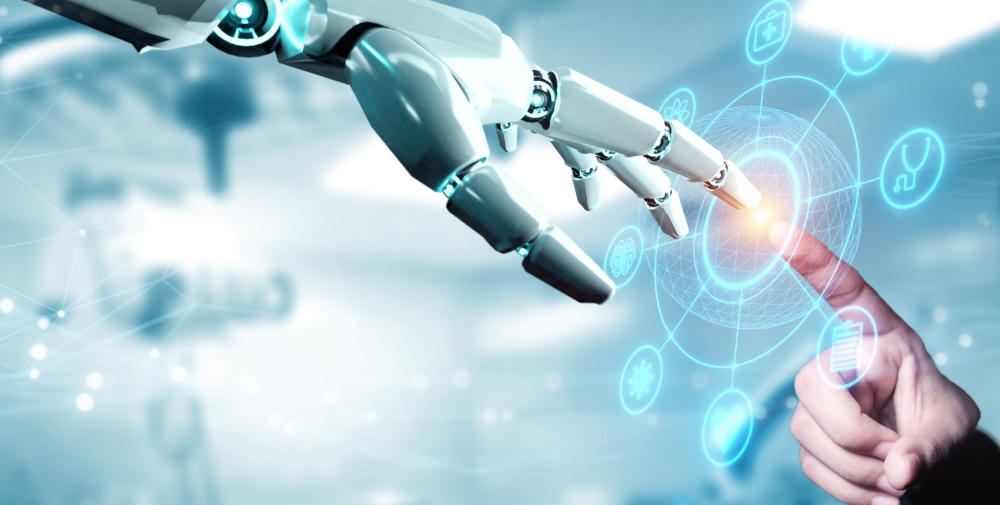
Marcin Swierkocki on the Full Range Leadership Model
Marcin Swierkocki on the Full Range Leadership Model
This blog is an excerpt from our new podcast! You can find the entire podcast episode here.
Marcin Swierkocki on the Full Range Leadership Model
In the newest episode of our podcast “Voices of Leadership | An MDI Spotlight Series,” we sat down virtually with MDI trainer and partner Marcin Swierkocki to discuss the Full Range Leadership Model. If you’re asking yourself, “What is the Full Range Leadership Model?” this blog article is just for you. We will give you the best insights from our conversation and share Marcin’s wisdom with you. Enjoy 🙂
Is it generational or transformational?
First, we asked Marcin what had changed in leadership since he started. What has he observed, especially when managing cross-generational teams? Marcin tells us that particularly older generations tend to prioritize transactional leadership, whereas younger leaders practice more of a “value-driven transformational leadership” style.
However, he recommends that younger leaders try out a transactional leadership style before practicing transformational leadership. He emphasizes:
“It’s more about my experience as a leader than a generational issue.”
But, what do these leadership styles mean, and what is the Full Range Leadership Model?
Marcin explains this simply – The full-range leadership model goes from laissez-faire, so an avoidant, inactive behavior from the leader. It also includes transactional leadership, which presupposes contingent reward, meaning one’s performance is consistently rewarded with, for example, boni.
Lastly, Marcin mentions the transformational leadership style, where employees are regarded as individuals with individual passions and needs. He also explains the four elements of transformational leadership – idealized influence, inspiring motivation, intellectual stimulation, and individual consideration.
The benefits to each leadership style
According to our guest, each leadership style bears its own benefits. While he does emphasize that laissez-faire is indeed the least effective leadership style, he also states that it can be effective when working with a mature team that has enough competencies or where creativity is needed.
Moreover, Marcin tells us that transactional leadership is distinguished by its straightforwardness and short-term effectiveness.
“The processes are well established, so companies that can thrive within this leadership behavior are the ones where processes are well set and working well.”
On transformational leadership, Marcin adds that transformational leadership fosters high trust and psychological safety within a team. Additionally, transformational leadership improves employee retention.
“Transformational leadership creates real impact.”

Creating real impact in the training
Not only does transformational leadership create real change, but Marcin notices the shift in his trainings. He tells a story of how an attendee succeeded to keep a highly qualified employee due to their increased empathy and transformational leadership style.
“I would say that I’ve just planted the seed. My role is minimal; very often, the growth is happening beyond the classroom.”
Marcin adds that while transactional leadership can be short-term effective as well, performance can also be successful in a caring and appreciative environment.
“I want my team to use their talents, because only when I’m capable of exploring their talents and matching the roles within the departments to their strengths, I can achieve higher engagement, higher loyalty and higher performance.”
AI and the future of leadership
For the future, Marcin sees the rise of transformational leadership as necessary. According to him, artificial intelligence can soon take over transactional tasks and thus have many of our established processes automated. The only tasks that AI cannot do better than us humans are soft skills such as empathy and building a proper culture with the team.
Still, Marcin emphasizes that leadership style is shaped less by generations and more by individual personality traits, personal leadership preferences, and the specific context or sector in which a team operates. He gives us the example of educational setups, where transactional qualities make more sense.
“We need to deeply understand who we are as human beings. Showing not only empathy, but an understanding that each individual is in a different situation.”
Leadership is everywhere
Lastly, Marcin reminds us that transformational leadership doesn’t stop in the organisation – it is a behavior that can be applied daily, whether it is in a private or professional setting.
“I can influence my family by individually stimulating their creativity. I can individually consider them. And then, idealized influence – Am I a role model for the people around me and the environment in my work?”
Conclusion
The Full Range Leadership Model shows that leadership is not about choosing one “right” style, but about understanding when and how to use different behaviors. While transactional leadership can deliver short-term results and structure, transformational leadership creates trust, engagement, and lasting impact.
As AI takes over more transactional tasks, human skills like empathy, self-awareness, and individual consideration will become even more important. Leadership, as Marcin reminds us, is deeply personal and goes far beyond the workplace. It’s about how we show up every day and how consciously we choose to influence the people around us.

Jana Wölfl
Marketing Assistant
Jana Wölfl is a marketing assistant at MDI and works on our blog. She has already been responsible for several areas of marketing, such as designing our new website and administering our personalist.at portal.












